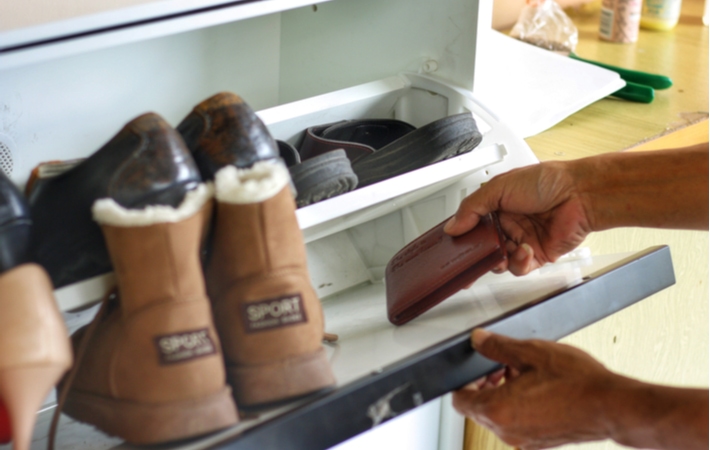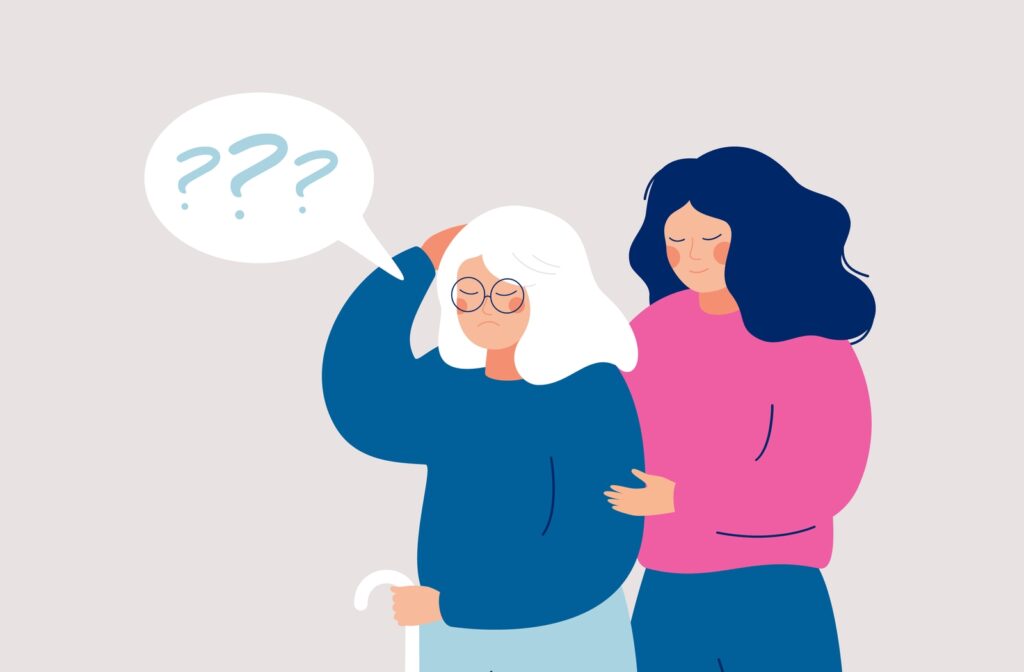Memory care can be a beneficial lifestyle for older adults experiencing dementia. The services provided by this lifestyle support residents in a safe and secure environment. While memory care is ideal for someone facing cognitive decline, how do you know when this lifestyle is right for your loved one?
Continue reading to learn more about memory care, including what support it provides and when someone can benefit from this lifestyle.
What Is Memory Care?
Dementia can be a concern as we grow older. This disease can significantly impact your loved one’s ability to live independently and take care of everyday needs. Many people assume that dementia only affects memory, but this disease can have a significant impact on how someone’s brain functions.
Dementia changes how the brain cells communicate with one another, affecting how someone thinks, behaves, and feels. It can affect everyday relationships as well. As your loved one’s dementia worsens, living alone or with family may become difficult or potentially hazardous.
When cognitive decline affects someone’s ability to live independently, memory care can provide the daily support they need. This lifestyle is ideal for older adults with Alzheimer’s or another form of dementia, helping them live happily and safely.
Memory care provides a secure and safe place to live while offering residents as much freedom as possible. With supportive services and amenities, you can rest easy knowing your loved one has everything they need.
What Does Memory Care Provide?
The services provided in memory care help make life more comfortable for seniors with cognitive dysfunction. Everyone has different needs, so each resident in a memory care community receives a customized care plan that helps provide the daily support they require. These plans are modified if someone’s needs change, providing more assistance.
This daily support includes assistance with any of the activities of daily living (ADLs) your loved one may struggle with. These ADLs include:
- Ambulating: The ability to move from one position to another & walk independently
- Feeding: The ability to feed oneself
- Dressing: The ability to select & put on appropriate clothing
- Personal hygiene: The ability to bathe, groom, & maintain dental, nail, & hair hygiene independently
- Continence: The ability to control bladder & bowel function
- Toileting: The ability to get to & from the toilet & use it appropriately
Support with ADLs is only a portion of the services memory care living provides. A memory care community features several services, amenities, and opportunities for social connections.
Some of the services and amenities featured in memory communities include:
- Ready for move-in apartments
- Brain stimulating activities
- Engagement for positive cognitive support
- 24-hour onsite medical care
- Professional caregivers
- Medication support
- Regular housekeeping
- Laundry services
- 3 prepared meals per day
- Communal areas for social engagement
The lifestyle offered in a memory care community provides the support your loved one needs. If deciding on whether to move into this community, how do you know when someone needs memory care?

When Does Someone Need Memory Care?
Dementia, especially Alzheimer’s, is a disease that worsens with time. As this disease progresses, your loved one may struggle more with daily tasks until they can no longer live independently. If your loved one is experiencing memory loss, they may not be aware of the symptoms, but you and your family may notice these changes.
While it is always essential to have a doctor assess your loved one’s health, there can be several signs that memory care might be an ideal choice. Visit your doctor for an assessment if any of the following applies to your loved one’s current situation:
- Lack of personal hygiene: Avoiding brushing teeth, bathing, or putting on clean clothes may be a sign that your loved one requires extra support
- Mistakes with medications or doctor’s appointments: Forgetting to take necessary medication or attend doctor’s appointments may mean your loved one is struggling to take care of themselves
- Difficulty with their daily routine: Struggles with regular tasks like housekeeping, grocery shopping, or paying bills may mean your loved one needs additional help
- Wandering: Wandering occurs in later stages of dementia when your loved one is unaware of their surroundings, placing them in potentially hazardous situations
- Shakiness & fall hazards: Advanced stages of Alzheimer’s can cause unsteadiness, placing your loved one at risk of a fall
- Signs of depression or social isolation: Isolation can be common when older adults experience dementia, causing them to become depressed due to a lack of social connection
- Personality changes: Dementia can affect how someone thinks & acts, causing potential personality shifts such as anger or agitation
- Severe memory loss: Advanced stages of dementia can cause severe memory loss, such as forgetting names or confusing family members
While your loved one may not be experiencing all of these signs, it’s beneficial to visit your doctor if any are relevant. Your doctor can recommend it if it’s time to think about memory care.
What Should You Look for in a Memory Care Community?
There is much to consider when looking for the right memory care community. The ideal community should help meet all of your loved one’s unique needs, such as:
- Dietary needs & meal preparation
- Assistance with personal hygiene & dressing
- Medication management
- Management of health conditions
- Staff supervision
If you’re unsure about making a final decision, you can always visit a community’s campus for a tour. You can get an in-person look at what memory care can offer your loved one. Contact us or book a tour if you’re interested in memory care for your loved one.




